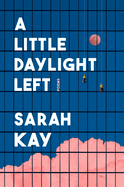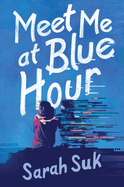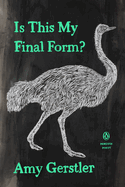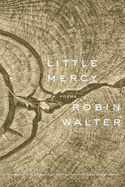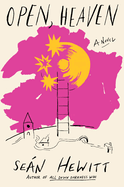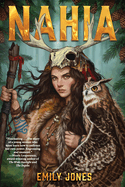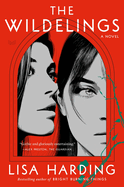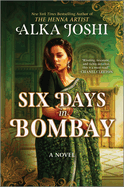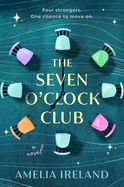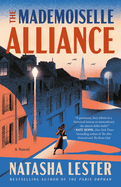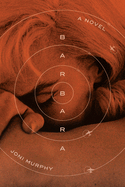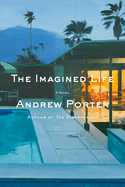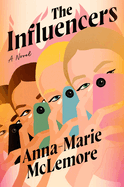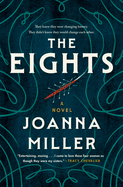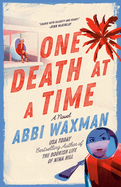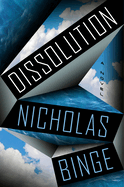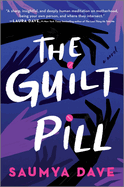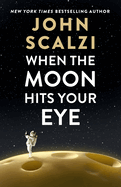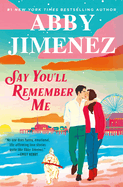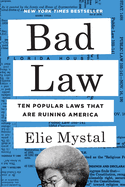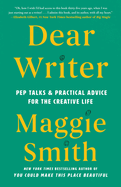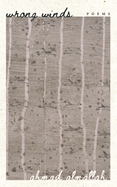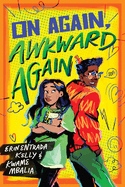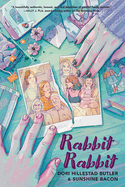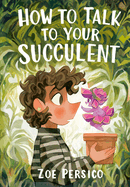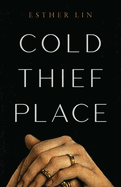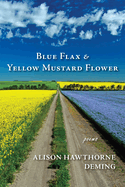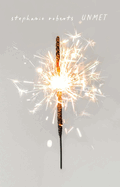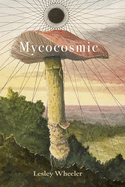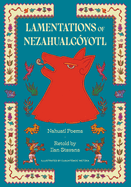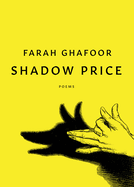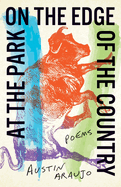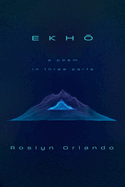Friday, April 18, 2025
In celebration of National Poetry Month, we've selected for your consideration several enthralling collections, including spoken-word artist Sarah Kay's "enchanting and honest" A Little Daylight Left, which invites even readers who don't read much poetry to "fall in love with the form." You'll find that "nature and language are saving graces" in Robin Walter's Little Mercy, and that the "allusions and wordplay" are "razor-sharp" in Ahmad Almallah's Wrong Winds. Meanwhile, Sarah Suk delivers "an impressive, multilayered story of love" in Meet Me at Blue Hour, a YA novel about friends from childhood who reconnect in an unexpected time and place.
For The Writer's Life, award-winning poet Amy Gerstler discusses the "nimble and capacious genre" of poetry as possibly "the most protean of art forms." This wide-ranging interview also touches upon the lessons to be learned from women who act boldly and the joys to be found in our fellow creatures on this planet.
Open, Heaven
by Seán Hewitt
Seán Hewitt's tender first novel, Open, Heaven, is a queer coming-of-age story that questions the assumed evanescence of teenage infatuation.
In 2022, James Legh, a 30-something librarian separated from his husband, returns to his hometown of Thornmere in the North of England to view a farmhouse for sale. He still thinks about his first love, Luke, whom he met on this farm 20 years ago. James has no intention of buying the property; instead, he has come to try to recapture the past and to commune with those he's lost as he also revisits the local churchyard and pub.
The remainder of the novel unfolds between autumn 2002 and the following summer: a pivotal year for 16-year-old James. One morning, he meets 17-year-old Luke, who is staying with his uncle, the farmer Hyde, while his father is in prison. The boys become friends through farm chores, playing video games, and attending a rugby club dance. But James is uneasy about Luke's form of masculinity. He knows he mustn't read too much into Luke's casual physical contact with him. Yet when Luke proposes a secret camping trip, James lets his romantic fantasies run wild.
Whether describing teenage emotions or the countryside across the seasons, Hewitt (All Down Darkness Wide) impresses with his lyrical prose. The first-person narrative is redolent of autofiction, alternating between raw and coy. The old-fashioned canalside village setting--Thornmere is described as "nowhere's junction and no one's destination"--contributes to an aura of timelessness. This elegiac novel, ideal for readers of Andrés N. Ordorica's How We Named the Stars, posits that first love--even if unrequited--persists. --Rebecca Foster, freelance reviewer, proofreader and blogger at Bookish Beck
Discover: Seán Hewitt's lyrical, elegiac novel tenderly unfolds a queer coming-of-age and makes a case for the primacy of first love--even if unrequited, even if lost.
The Wildelings
by Lisa Harding
Lisa Harding (Bright Burnings Things; Cloud Girls) will haunt readers with the psychological drama of The Wildelings, a compulsively readable novel in which a woman looks back on her college days and a long-lost friendship.
Jessica is introduced as she begins therapy, newly divorced, in her 40s. The novel's inciting event, however, is not divorce but a new play by an old acquaintance. Asked by her therapist to write down her memories and "start at the beginning," Jessica recalls her first year at Dublin's Wilde College and "The Unholy Quintet: Mark, Linda, Jonathan, Jacques, and me."
Linda had been Jessica's best friend since childhood. When the underprivileged, underparented pair achieves surprising slots at the "pretentious arty" college, Jessica is highly ranked for her beauty as well as her acting prowess; Linda, as ever, dwells in the shadows. But just as Jessica enters a charged relationship with the sexy Jacques, Linda finds love with Mark, a magnetic fourth-year playwright and director, after a false start with golden boy Jonathan. The older student's grasp on the group tightens, especially after Mark casts Jessica in what he claims will be a breakout play. Mark proves treacherously adept at directing the people around him, on and off the stage.
Harding gives Jessica a self-excoriating, incisive, bitter, and evocative first-person voice. The Wildelings' inexorable plot is like the proverbial train wreck: shocking, electric, impossible to turn from. Its psychological tumult verges on horror. With this atmospheric roller coaster of a novel, Harding offers pulsing intensity, gut-wrenching emotional upheaval, and high drama in every sense. --Julia Kastner, blogger at pagesofjulia
Discover: Lifelong friends splinter and suffer in their first year of college under the spell of a charismatic older student in this atmospheric roller coaster of a novel.
Six Days in Bombay
by Alka Joshi
Alka Joshi's evocative fourth novel, Six Days in Bombay, is a nuanced exploration of selfhood and a vibrant portrait of interwar Europe.
Anglo Indian nurse Sona Falstaff enjoys interacting with her patients at a Bombay hospital. When painter Mira Novak comes under Sona's care, Sona is dazzled by Mira's charisma and her stories about travel, art, and music. But when Mira dies, Sona is blamed and let go from her job. Determined to prove her innocence, Sona sets out for Europe, carrying four of Mira's paintings and searching for answers regarding Mira's death.
Joshi (The Perfumist of Paris) sensitively explores the gender dynamics of 1930s India, where women lived under various constraints, and Sona's struggle as a person of mixed parentage who draws notice and often judgment. Joshi's portrayal of Sona's mother, who once loved and lost a British soldier, is especially poignant. As Sona crosses Europe, she visits Prague, Paris, and Florence, and meets with Mira's friends and past lovers. She encounters women who are building lives on their own terms and gains greater (if often uncomfortable) insight into the complicated woman who charmed her. Reckoning with her fresh grief and her longstanding resentment of her absent father, Sona must decide what shape her future will take, and how brave she is willing to be.
Combining cinematic descriptions of European travel with an intimate inner journey toward healing, Six Days in Bombay is a captivating account of one woman's search for her own identity. --Katie Noah Gibson, blogger at Cakes, Tea and Dreams
Discover: Alka Joshi's evocative fourth novel follows an Anglo Indian nurse across Europe as she seeks insight into a female painter's death and her own identity.
The Seven O'Clock Club
by Amelia Ireland
Grief becomes a pathway to love, community, and healing in The Seven O'Clock Club by Amelia Ireland. This touching and startling debut novel follows four strangers who meet in an experimental counseling group. Victoria, a middle-aged lawyer with "[p]erfect nails, enormous engagement ring. Stupidly shiny hair"; Mischa, a young woman described as "the human equivalent of a baby mouse"; Freya, an interior designer who hadn't left her house in six months until the first session; and Callum, a famous singer-songwriter whose good looks cannot disguise the "tell-tale signs of a haunted human being." Facilitated by Genevieve, the program's purpose is "exploring alternative ways of navigating the grief process."
She asks them to share their internal lives with each other a bit at a time, beginning with childhood memories, fostering a bond between them. Walls slowly come down, and as the group struggles through setbacks and conflicts, revelations of their individual pain surface. However, when all their truths finally rise to the light, healing comes with difficult choices. Genevieve is no ordinary counselor, and her sessions have an end goal none of the participants could ever have imagined.
This propulsive, heartfelt novel is grounded in moving depictions of bereavement, with each section of chapters named after a Kübler-Ross stage of grief. The first-person point of view shifts among the foursome, but Ireland has written their voices so distinctly that changes in perspective never leave one uncertain which character has taken over the narration.
Readers seeking an engrossing emotional journey that deeply engages their sympathy and offers thought-provoking surprises with a touch of magical realism will find much to like in this life-affirming ensemble drama. --Jaclyn Fulwood
Discover: This touching and startling debut novel asks how to put into words a sorrow that feels beyond comprehension and whether some wounds can ever mend.
The Mademoiselle Alliance
by Natasha Lester
Natasha Lester's gripping historical novel The Mademoiselle Alliance observes the French resistance through the eyes of Marie-Madeleine Fourcade, who transformed herself from socialite to fearless spy leader. The only woman to lead a resistance network in Nazi-occupied France, Marie-Madeleine operated with strategy, daring, and instinct--driven by deep patriotism and motivated, always, by love.
Lester (The Disappearance of Astrid Bricard) opens her narrative with Marie-Madeleine's prewar persona: an adventurous socialite who adores her children but chafes against her husband's strictures. As war comes to France, Marie-Madeleine joins a mysterious network gathering vital intelligence to undermine the Nazis and their Vichy collaborators. Lester shares details of tactics, sabotage, and all-important radio transmissions, connecting Marie-Madeleine's work to that of MI6 in London. But in wartime, courage can come at a terrible price, and Marie-Madeleine must carry out her dangerous work despite fearing for her operatives, her children, and Léon Faye, the fellow agent she loves.
Lester illustrates the contradictory aspects of Marie-Madeleine's life as a brilliant field agent and as a woman. Though she was bold and cunning, she was also daunted by the weight of her responsibilities and faced sexism from her male colleagues. She was confident in her ability to lead but also longed to be seen and loved. Lester weaves these threads--mother, leader, field agent, feminist--into an intricate tapestry depicting an extraordinary life of heroism, nerve, and sacrifice. The Mademoiselle Alliance is a worthy tribute to a woman whose clandestine work helped ensure that her beloved France regained its freedom. --Katie Noah Gibson, blogger at Cakes, Tea and Dreams
Discover: Natasha Lester's riveting ninth novel brings the French resistance to life through the heroism, nerve, and sacrifice of a socialite turned spy leader.
Barbara
by Joni Murphy
Barbara's life has rarely been glamorous. The unease of her early childhood is a result of her father's career as an engineer for the Manhattan Project. She slowly loses the hope that the atomic bomb would create positive change after World War II, and her childhood is further upended when her mother dies by suicide. Joni Murphy (Talking Animals; Double Teenage) creates a complex, intimate portrait of Barbara's journey to stardom through Cold War political paranoia and into the late-20th century.
Untethered from her youthful naïveté and home, Barbara decides to move to New York City, where she stumbles upon and subsequently falls in love with acting. From adolescence to adulthood, Barbara discloses her innermost thoughts. "In the mirror I saw that ineffable feminine glow.... My starvation and pills kept my neck and collarbones fragile. What could all this be worth? A life on the stage? A series of destinations? I was bent on finding out." Murphy illuminates the charmed and challenging aspects of Barbara's life in this thorough character study of an alluring and complicated subject.
Barbara's career and romantic relationships take her to places such as Amsterdam, France, and Greece. Her experiences with her family, men, and the silver screen reveal aspects of her identity, although the glow of her ascent is constantly dulled by her recurring struggle to understand her father's career and involvement with such a devastating weapon. Murphy's prose is diary-like, inviting readers into Barbara's captivating confidence. Complete with photographs of scenes and settings from the era, the first-person narrative explores identity, tragedy, and the interconnected personal and political hardships of Barbara's life. --Clara Newton, freelance reviewer
Discover: Joni Murphy creates an intimate look into the life of a 20th-century actress via diary-like prose that invites readers into her captivating confidence.
The Imagined Life
by Andrew Porter
Is it ever possible for people to truly know their parents and the deep truths of their lives? That's the question Andrew Porter confronts with sensitivity and insight in his searching novel, The Imagined Life.
Amid a marital crisis, Steven, the novel's narrator, quits his job as a university writing teacher and sets out down the California coast. He seeks to solve the mystery obscuring the life of his father, a college English professor who disappeared without explanation 40 years earlier, leaving behind his wife and 12-year-old son.
In addition to his uncle, Julian, Steven visits a few of his father's former colleagues. One key missing piece of the puzzle is any communication with a fellow faculty member, Deryck Evanson, who almost certainly was Steven's father's lover and who has avoided Steven's attempts to contact him.
Although his journey is an effort to unearth and confront his father's secrets, Steven also comes to understand how the turmoil they caused marred his own childhood in ways that distorted his life. Porter (The Theory of Light and Matter) patiently knits these strands together, culminating in an impressively moving climax. Steven's father's "private obsession" with Marcel Proust hovers over the novel, highlighted by one quotation about grief he records that serves as an apt summation of his life: "It is often hard to bear the tears that we ourselves have caused." Striving honestly to understand how one may have done that, Porter suggests, is a potential path to righting unintended wrongs and going on to live another day. --Harvey Freedenberg, freelance reviewer
Discover: In this sensitive and insightful novel by Andrew Porter, a man seeks the truth of his father's troubled life and tries to reconcile it with his own.
The Influencers
by Anna-Marie McLemore
Anna-Marie McLemore's (When the Moon Was Ours; Flawless Girls; Self-Made Boys) first book for adults is The Influencers, an intriguing and thrilling murder mystery.
The Iverson family members have grown up on-screen thanks to May Iverson, a "momfluencer" known as "Mother May I," and her online media empire. Daughters April, June, July, January, and March all have contentious relationships with the Mother May I brand. When May's new husband, August, is murdered and someone tries to burn down the Iverson house on the same night, the sisters are pushed together while they deal with the police investigation, the true-crime podcasters, and the millions of people waiting to see what behind-the-scenes footage of their perfectly curated family life will be revealed next. Questions abound, but the only certainty is that The Influencers will keep readers guessing through twist after twist.
McLemore's novel points a damning lens at an Internet subculture that exploits the lives of children for their parents' financial gain--while hooking readers as effectively as a tabloid story and avoiding being preachy. The characters are complex even when their appearances are fleeting. McLemore builds a world that draws from reality in engaging and even playful ways as she explores family, social, and even parasocial relationships. The Influencers is a stunning novel that is sure to please McLemore's fans and bring new readers to their YA novels. --Michelle Anya Anjirbag, freelance reviewer
Discover: Anna-Marie McLemore's first novel for adults is a thrilling, fast-paced murder mystery that explores the culture of family influencers.
The Eights
by Joanna Miller
Joanna Miller's perceptive debut novel, The Eights, imagines the friendship between four women, among the first to matriculate to Oxford University. Through the stories of Beatrice, Dora, Otto, and Marianne, who live on the same corridor (number eight, of course) at St. Hugh's College, Miller examines gender dynamics, power and privilege, and female friendship against the backdrop of 1920s Oxford.
Beatrice, the too-tall daughter of a prominent suffragist, has spent her life trying to live up to her mother's expectations. Dora is reeling from the deaths of her brother and her fiancé in World War I, while Marianne, the dutiful daughter of a widowed rector, is hiding a surprising secret. And Otto, the group's glamorous ringleader, carries deep inner wounds and equally deep compassion for the few people she fiercely loves.
As the women adjust to the vagaries of life at Oxford, they learn to rely on one another not only for late-night music and ginger biscuits in Otto's room but also for help with assignments, advice on romantic troubles, occasional rule-breaking, and care when they're sick in body or spirit. Though all four have come to Oxford with a ferocious drive to prove themselves, they gradually learn to relax in one another's presence and come to see one another as true comrades-in-arms.
"The Eights" bear the burden of making history, but they find succor, support, and unexpected joy in one another's presence. Anglophiles and history lovers will relish the world Miller has brought to life, but the heart of the narrative is the intense, complex bond between four vibrant, determined women. --Katie Noah Gibson, blogger at Cakes, Tea and Dreams
Discover: Joanna Miller's perceptive debut novel imagines the friendship between four of the first women to matriculate to Oxford University in 1920.
Mystery & Thriller
One Death at a Time
by Abbi Waxman
Abbi Waxman's quick-witted seventh novel, One Death at a Time, mixes a cracking good mystery with movie-studio politics and a pair of alcoholics who discover that murder can be an excellent distraction from booze--or what drives them (back) to drink.
Natasha Mason meets actress and ex-con Julia Mann at a 12-step meeting for recovering alcoholics and quickly becomes Julia's assistant and her sponsor. When she's accused of murdering her former lover, Julia enlists Mason to help clear her name, which becomes even more urgent after a second death occurs. As the press draws connections between Julia, the murders, and a decades-old "curse" connected to Julia's breakout movie, Mason finds herself enjoying this wild ride through the glitter and grit of Los Angeles, Calif. Her new job comes with plenty of risk, but it just might help her stay on the wagon--for now.
Waxman (Adult Assembly Required; The Bookish Life of Nina Hill) marshals a cast of L.A. archetypes: an ingenue actress, an egotistical producer, a burlesque club owner and her maybe-a-mobster business partner. Meanwhile, Julia enlists a quirky team of unorthodox sleuths to dig into the case. While dodging both cameras and the cops, Mason and Julia must prove Julia's innocence, stay away from the booze, and avoid killing each other out of sheer frustration. With outsize egos, vintage gowns, high-speed car chases, and sarcasm as dry as a gin martini, Waxman's plot is a clever balance of Hollywood illusion and classic whodunit, spiked generously with humor and heart. --Katie Noah Gibson, blogger at Cakes, Tea and Dreams
Discover: Abbi Waxman turns her hand to mystery with a clever whodunit, mixing movie-studio politics with a pair of alcoholics trying to stay sober and out of jail.
Dissolution
by Nicholas Binge
Nicholas Binge's thought-provoking sci-fi thriller Dissolution begins as 83-year-old Maggie sits at the bottom of an empty swimming pool, hooked up to an IV, with no idea how she got there. She's being interviewed by a stranger who says his name is Hassan and that Maggie's husband, Stanley, is in danger and they have only 11 hours to save him. When Maggie says she doesn't remember anything, Hassan gives her a pill that enables her to have perfect recall.
Thanks to the drug, Maggie remembers Stanley is in a care home called Sunrise. His mental condition has been deteriorating and he sometimes doesn't recognize her. Hassan makes a startling claim: Sunrise has been removing some of Stanley's memories and he's actually a prisoner there. Hassan then asks Maggie to help him break Stanley out of Sunrise so Hassan can restore Maggie's husband to his former self.
The novel alternates between transcripts of Maggie's continuing interview and chapters covering Stanley's past. In the 1950s, he is a brilliant university student with a perfect memory. He and his favorite professor conduct secret memory experiments that lead to the release of something terrifying. Something possibly connected to Sunrise. Something that could still destroy the world.
Despite its impressive world-building and science-speak, Dissolution's standout is the love story between Maggie and Stanley. Their love transcends time and memory, remaining the one fact they know to be true. A recurring theme is the theory posed in Plato's Phaedrus that the invention of writing weakened the need for memory, resulting in the decline of true understanding and intelligence. But Dissolution does the opposite--it expands the mind and comprehension of reality. --Elyse Dinh-McCrillis, reviewer and freelance editor at The Edit Ninja
Discover: In this thought-provoking sci-fi thriller, an 83-year-old woman must save her husband--and possibly the world--from being eliminated by a frightening entity.
The Guilt Pill
by Saumya Dave
Writer and psychiatrist Saumya Dave draws upon her experience as a working mother with The Guilt Pill, a taut narrative that confronts the unrealistic balance demanded of women with careers and families. CEO Maya Patel appears to be doing it all: managing her fast-growing sustainable self-care company while on family leave and giving her all to her husband, baby, friends, and social media followers. When Maya's highly Instagrammable life starts to fracture under the pressure, fellow "#girlboss" Liz Anderson offers a way out: a pill that takes away the guilt. This miracle supplement quiets the voice in Maya's head, the one insisting, "You don't love your baby enough. You're a bad mother. And a bad founder." But soon, one pill isn't enough, and as Maya's reliance on the pills increases, so do the cracks in her marriage, family, and career. When she disappears one evening, everyone fears the worst.
The Guilt Pill opens just after Maya goes missing, then traces the events of the months before her disappearance. The investigation, told through a flurry of news items, police-interview and podcast transcripts, and online comments, will have readers flying through the pages to discover what happens, but it is the burden of each day leading up to Maya's disappearance that will resonate most. Despite some inconsistencies, Maya's struggle to maintain a healthy equilibrium will feel familiar to any woman who has lived inside the pressure to be and do it all. --Sara Beth West, freelance reviewer and librarian
Discover: The Guilt Pill from author and psychiatrist Saumya Dave is a taut narrative that confronts the unrealistic balance demanded of women with careers and families.
Science Fiction & Fantasy
When the Moon Hits Your Eye
by John Scalzi
The ability of humanity to face the unexpected is pushed to the limit in When the Moon Hits Your Eye, a sharp, absurdist satire from John Scalzi (Starter Villain; The Kaiju Preservation Society; The End of All Things).
It begins at the Armstrong Air and Space Museum. Its lunar rock sample initially appears to have been stolen and replaced with another material. Except it shortly becomes clear that not only have all the moon rocks on Earth now changed but the moon itself is also brighter than it should be in its crescent phase, as if it's reflecting light differently. Somehow, the moon has transformed into "an organic matrix" or, for those who want to be less technical: cheese. Worse, the moon cheese is unstable.
Readers follow a cast of characters from various walks of life as Scalzi explores how humanity reacts to the unprecedented. These characters include astronauts whose lunar missions are canceled, a billionaire of a familiar type who seeks to use the situation to the advantage of his own space exploration program, and a popular-science author whose profile skyrockets. Scalzi's trademark wit shines through as the apocalypse looms in a form more ludicrous than anyone imagined. The wealthiest scramble to be able to brag that they ate moon cheese. Some question their faith, some take to the streets, and some try to set personal matters straight before the end. To laugh instead of cry at how bad disaster response can get, turn to Scalzi. --Kristen Allen-Vogel, information services librarian at Dayton Metro Library
Discover: The world is ending not by fire, nor by ice, but by cheese in this sharply funny satire by John Scalzi.
Romance
Say You'll Remember Me
by Abby Jimenez
Abby Jimenez (Just for the Summer; Yours Truly) has created another captivating, deeply emotional novel with Say You'll Remember Me.
The story begins when Samantha Diaz, a social media manager, takes a kitten she found in a woodpile to possibly the hottest veterinarian ever. But Dr. Xavier Rush says something Samantha finds incredibly hurtful: he repeatedly recommends euthanasia, because the surgery the kitten needs costs far more than Samantha can afford. Determined to prove Xavier wrong, Samantha crowdfunds the money over the course of four days, and to her surprise, Xavier graciously admits he was mistaken. Six weeks later, she gets back in touch with Xavier to get a certificate of health for the cat, and he asks her out. Xavier then takes her on the best date of her life.
Their connection is undeniable, but they face an immediate obstacle: the date was on Samantha's last evening in Minneapolis, Minn. She's moving back to California to help her family through a crisis. But Xavier can't let Samantha go after their perfect night together. Both Samantha and Xavier are dealing with hard situations in their extended families--including dementia, financial debt, and past trauma. Their burgeoning relationship is a lifeline of hope in the midst of it all.
Abby Jimenez has once again crafted an appealing novel that speaks to her skill for combining elements of hilarity and heartfelt romance while thoughtfully exploring complex subjects. Although fans of Sophie Cousens and Annabel Monaghan will especially enjoy it, Say You'll Remember Me is a delightful and poignant romance that will appeal to a wide audience. --Jessica Howard, former bookseller, freelance book reviewer
Discover: In this poignant romance, a sexy veterinarian and the woman whose kitten he saved must navigate substantial obstacles to their relationship.
Political Science
Bad Law: Ten Popular Laws That Are Ruining America
by Elie Mystal
Elie Mystal (Allow Me to Retort) takes readers through some of the worst laws in the United States in Bad Law, which is at times infuriating. Mystal tackles topics such as gun control, abortion, immigration, and more, and even the most politically savvy readers are likely to learn something. For example, the Hyde Amendment has been attached to every congressional omnibus spending bill since 1976. It prohibits using federal health care funds for abortions and disproportionately impacts low-income and impoverished people. Continuing to attach this amendment to annual spending bills, Mystal asserts, is an intentional choice that "should be challenged every single year... until it is repealed."
Bad Law is full of meticulous details about the intricacies of how lawmakers shape the country. Mystal is not shy about interjecting his own opinions about laws and lawmakers, humanizing what could otherwise be a dry and inaccessible subject. Comparing living in the United States to a "first-person shooter game because of the law," Mystal describes a legal system that promotes "bigotry and discrimination, the rapacious accumulation and hoarding of wealth, and vigilante justice."
Mystal ensures readers are aware that both parties are to blame for some of these bad laws. Notably, the 1994 Violent Crime Control and Law Enforcement Act (often called simply "the Crime Bill") is a primary cause of mass incarceration in the United States, and was a proud moment for Bill Clinton's Democratic administration.
Ending with suggested solutions and a call to vote, Bad Law is an approachable work of political science, recommended for readers of Michelle Alexander's The New Jim Crow and Kristin Kobes Du Mez's Jesus and John Wayne. --Alyssa Parssinen, freelance reviewer and former bookseller
Discover: Meticulous and infuriating, Bad Law introduces readers to some of the worst U.S. laws and the lawmakers who create them.
Reference & Writing
Dear Writer: Pep Talks & Practical Advice for the Creative Life
by Maggie Smith
In her winsome, practical Dear Writer, poet and memoirist Maggie Smith shares reflections on the elements of creativity, plus useful tools and prompts for artistic practice. Drawing on her considerable experience in writing and teaching, Smith (You Could Make This Place Beautiful) dispenses craft tips alongside warm, forthright encouragement for writers of all stripes.
"Creativity is the great expander," Smith writes in the introduction, referring not only to writing but to building a spacious life. In 10 sections with titles such as "Wonder," "Vision," "Tenacity," and "Surprise," Smith dives into the mindset of an artist: someone who pays attention, asks deep questions, strives to capture beauty or process pain through the act of creation. Reflecting on that mindset, Smith offers strategies born of her writing practice; annotates and dissects her poems as illustrations; and provides suggested reading lists, advising readers to develop a "personal syllabus" of texts and techniques for inspiration and revision.
Smith's approach is both playful and serious: she is committed to writing with clarity, honesty, and grace. But she's also a student of delight, of "artistic mischief" and experimentation. Dear Writer urges readers to take the creative process seriously but treat their own work lightly--and to relish wordplay and shenanigans, pause when a fleeting "beauty emergency" arises, and notice moments of humor and joy. The creative life, Smith says, is full of gifts to acknowledge and celebrate, and Dear Writer is a joyous, wise companion for the journey. --Katie Noah Gibson, blogger at Cakes, Tea and Dreams
Discover: Poet and memoirist Maggie Smith's guide for writers dispenses wise, forthright encouragement alongside practical tools and prompts for the creative life.
Poetry
A Little Daylight Left
by Sarah Kay
Poet and spoken-word artist Sarah Kay's A Little Daylight Left is an accessible collection that invites readers--even those new to poetry--to fall in love with the form. It launches into the first poem, "A Bird Made of Birds," even before the table of contents. The collection provides its own epigraph, one poem on behalf of them all, saying "Take this fruit./ It is what I have to offer." Kay's poems are meant to be heard, singing off the page and asserting their songs through stylistic choices. These include extended spaces between phrases that serve as microbreaks within a line and internal repetitions that pulse like those found in "Jakarta, January," which asks, "what is a boy/ if not a glowing thing learning what he can get away with" before reprising the question a few lines later: "what is a girl/ if not a pulsing thing learning what the world will take from her."
The collection, divided into three sections, is accentuated by line drawings from illustrator Sophia Janowitz, Kay's lifelong friend, who features in the poem "Pulling a Sarah": "she doesn't have to say any more for me to know she is still there." Kay swings between feelings of abiding connection, like those between her family or friends, and feeling alone, as in "Hitting Rocks into Useless Bay," which wrestles with the idea of metaphor and meaning in the wake of loss: "Let the young men be just young men, & not my heart, forever swinging./ Let the water be just water & not the vast loneliness." But always, A Little Daylight Left is a truth teller's song, enchanting and honest. --Sara Beth West, freelance reviewer and librarian
Discover: Sarah Kay's A Little Daylight Left is an accessible collection that invites readers-- even those new to poetry--to fall in love with the form.
Is This My Final Form?
by Amy Gerstler
Amy Gerstler's exceptional book of poetry, Is This My Final Form?, leaps from surrealism to elegy as it ponders life's unpredictability.
The language of transformation is integrated throughout. Aging and the seasons are examples of everyday changes. "As Winter Sets In" delivers "every day/ a new face you can't renounce or forsake." "When I was a bird," with its interspecies metamorphoses, introduces a more fantastical concept: "I once observed a scurry of squirrels,/ concealed in a hollow tree, wearing seventeenth/ century clothes. Alas, no one believes me." Elsewhere, speakers fall in love with the bride of Frankenstein or turn to dinosaur urine for a wellness regimen.
The collection contains five thematic slices. Part I spotlights women behaving badly (such as "Marigold," about a wild friend; and "Mae West Sonnet," in an hourglass shape); Part II focuses on music and sound. The third section veers from the inherited grief of "Schmaltz Alert" to the miniplay "Siren Island," a tragicomic Shakespearean pastiche. Part IV spins elegies for lives and works cut short. The final subset includes a tongue-in-cheek account of pandemic lockdown activities ("The Cure") and wry advice for coping ("Wound Care Instructions").
Monologues and sonnets recur--the title's "form" refers to poetic structures as much as to personal identity. Alliteration plus internal and end rhymes create satisfying resonance. In the closing poem, "Night Herons," nature puts life into perspective: "the whir of wings/ real or imagined/ blurs trivial things."
This delightfully odd collection amazes with its range of voices and techniques. --Rebecca Foster, freelance reviewer, proofreader and blogger at Bookish Beck
Discover: The poems in Amy Gerstler's delightfully odd collection ponder metamorphoses mundane and fantastical, drawing on traditional forms and themes of music and loss.
Little Mercy: Poems
by Robin Walter
In poet Robin Walter's refined debut collection, Little Mercy, nature and language are saving graces.
Many of Walter's poems are as economical as haiku. "Lilies" entrances with its brief lines, alliteration, and sibilance: "Come/ dark, white/ petals// pull/close// --small fists// of night--." A poem's title often leads directly into the text: "Here" continues "the body, yes,/ sometimes// a river--little/ mercy." Vocabulary and imagery reverberate, as the blessings of morning sunshine and a snow-covered meadow salve an unquiet soul ("how often, really, I want/ to end my life").
Frequent dashes suggest affinity with Emily Dickinson, whose trademark themes of loss, nature, and loneliness are ubiquitous here, too. Vistas of the American West are a backdrop for pronghorn antelope, timothy grass, and especially the wrens nesting in Walter's porch. Animals are also seen in peril sometimes: the family dog her father kicked in anger or a roadkilled fox she encounters. Despite the occasional fragility of the natural world, the speaker is "held by" it and granted "kinship" with its creatures. (How appropriate, she writes, that her mother named her for a bird.)
The collection skillfully illustrates how language arises from nature ("while picking raspberries/ yesterday I wanted to hold in my head// the delicious names of the things I saw/ so as to fold them into a poem later"--a lovely internal rhyme) and becomes a memorial: "Here, on earth,/ we honor our dead// by holding their names/ gentle in our hollow mouths--." This poised, place-saturated collection illuminates life's little mercies. --Rebecca Foster, freelance reviewer, proofreader and blogger at Bookish Beck
Discover: The poems in Robin Walter's debut collection channel Emily Dickinson, proffering nature and language as saving graces for a lonely writer in the American West.
Wrong Winds
by Ahmad Almallah
Palestinian poet Ahmad Almallah's razor-sharp third collection, Wrong Winds, bears witness to the devastation of Gaza.
Through allusions, Almallah (Bitter English) participates in an ancient lineage of poets, opening the collection with an homage to Al-Shanfarā and ending with "A Lament" for Zbigniew Herbert. Federico García Lorca is also a major influence. Occasional snippets of Arabic, French, and German, and accounts of travels in Berlin and Granada, reveal a cosmopolitan background. The speaker in "Loose Strings" considers exile, engaged in the potentially futile search for a homeland that is being destroyed: "What does it mean to be a poet, another 'Homer'/ going home? Trying to find one?"
Tonally, anger and grief alternate, while alliteration and slant rhymes (sweat/sweet) create entrancing rhythms. In "Before Gaza, a Fall" and "My Tongue Is Tied Up Today," staccato phrasing and spaced-out stanzas leave room for the unspeakable. The pièce de résistance is "A Holy Land, Wasted" (co-written with Huda Fakhreddine), which situates T.S. Eliot's existential ruin in Palestine. Almallah contrasts Gaza then and now via childhood memories and adult experiences at checkpoints. His pastiche of "The Waste Land" starts off funny ("April is not that bad actually") but quickly darkens, scorning those who turn away from tragedy: "It's not good/ for your nerves to watch/ all that news, the sights/ of dead children." The wordplay dazzles again here: "to motes the world crumbles, shattered/ like these useless mots."
For Almallah, who now lives in Philadelphia, Pa., Gaza is elusive, enduringly potent--and mourned. Sometimes earnest, sometimes jaded, Wrong Winds is a remarkable memorial. --Rebecca Foster, freelance reviewer, proofreader and blogger at Bookish Beck
Discover: Through allusions and wordplay, the 17 poems of Ahmad Almallah's razor-sharp third collection bear witness to the destruction of Gaza.
Children's & Young Adult
Meet Me at Blue Hour
by Sarah Suk
Canadian Korean author Sarah Suk's Meet Me at Blue Hour is an impressive multilayered story of love, both romantic and familial. Yena, 17, is working as an archive assistant at a pioneering facility for memory erasure, the Sori Clinic in Busan, Korea. Its founding director, Dr. Mira Bae ("a genius, a boss, a trailblazer") is Yena's mother. She "would not have her only daughter graduate from high school with no college plans or future aspirations," so she concocted a job that brought Yena from Vancouver, where Yena lives with her father, to Busan for a mother/daughter summer together.
On her inaugural jog to the office, Yena crashes and falls into childhood best friend Lucas, who disappeared from her life without a trace four years ago. Lucas is standing outside Sori Clinic because his beloved grandfather is losing his memories to Alzheimer's and Lucas desperately needs to get him into Sori's experimental recovery program. But adult Lucas doesn't recognize Yena at all. This time, though, Yena won't let Lucas go, even if the truth might harm more than heal.
Suk (The Space Between Here & Now) deftly alternates Yena's and Lucas's first-person points of view, with unexpected, extraordinary interstitials that feature quotidian objects imbued with the pair's shared past. While lost-and-found love is at the novel's crux, Suk also seamlessly explores strained and renewed relationships between children and parents. Suk writes wondrously developed characters, their experiences enhanced with intricate details and brilliant plot shocks as they unravel, remake, and restart their way to reconnection and recovery. --Terry Hong
Discover: Sarah Suk's splendid Meet at Blue Hour presents the soulful reunion of two Canadian childhood best friends who run into each other on the other side of the world in Korea as teens.
Nahia
by Emily Jones
Set in the lush forests and coasts of Western Europe around 8,000 years ago, the compelling Nahia offers a glimpse into the chaotic moment when hunter-gatherers were beginning to encounter people who practiced agriculture and introduces readers to a fierce and intuitive girl coming of age within this framework.
Nahia, as firstborn daughter of the headwoman of the Sea People, can't understand why her mother is ignoring the ominous signs that it's time to move her people inland to safety. Bands down the coast have been attacked by strangers from far away, food is growing scarce, the weather has been stormy, and social unrest threatens to fracture the Sea People. But after expressing her concerns one too many times, Nahia is ousted from the community and sent to live with a shaman named Eneko. While traveling in her beloved forest with the intimidating but kind shaman, Nahia discovers that she can hear the voice of the spirits, and she is terrified by what they have to tell her about her people.
Archeologist Emily Jones, in her YA fiction debut, infuses expert storytelling with deep knowledge from her background. The result is a powerfully creative and moving work of fiction that develops the realistic and relatable pre-history characters of Nahia and the matriarchal Sea People. They, like so many cultures forced to face changes from outside, experience the grim and sometimes brutal tension between changing their ways and holding onto traditions. Jones adds depth and richness to her imagined world with over a dozen pages of notes describing what is known about the era of her fictional Sea People. --Emilie Coulter, freelance writer and editor
Discover: Nahia is a gripping, relatable novel about coming of age in a world-changing time of social and environmental unrest: the prehistoric European transition from foraging to farming.
On Again, Awkward Again
by Erin Entrada Kelly and Kwame Mbalia
Two-time Newbery Medalist Erin Entrada Kelly (First State of Being) and Coretta Scott King Author Honor winner Kwame Mbalia (Tristan Strong Punches a Hole in the Sky) join forces in the wholesome, funny YA rom-com On Again, Awkward Again, about awkward first love and staying true to oneself.
Freshman Pacita "Pacy" Mercado, who's Filipino American, is a Star Trek: Next Generation stan who refuses to assimilate with her "mindless conformist" classmates. Cecil Holloway, who's Black, is a Star Wars diehard with IBS and has a penchant for quirky fashion. Cecil "reject[s] rejection" and wants no part of love, while Pacy thinks crushes are just "romantic propaganda." But it's crush at first sight when Pacy and Cecil meet. When they start to grow closer, however, "the giant hand of fate" appears to yoink away the good, like first kisses that yield head bonks and even an allergic reaction. The whole "romance" thing doesn't seem to be going smoothly, but if they could just "embrace the imperfections," as Cecil's grandfather says, then maybe they'll see that they're actually extensions of each other's "weird little soul."
Kelly and Mbalia's realistic depiction of first love is innocent, sweetly cringey, and comical. The authors perfectly encapsulate the universal experience, showing the excitements and disappointments of young love. Dual first-person perspectives give insight into not only how Cecil and Pacy feel about each other, but also how they're coping with their own issues. Topics such as divorce and insecurity are addressed with care, and the importance of being yourself and not judging others is celebrated. Each character has their quirks, like Pacy's rambling dialogue and Cecil's threats to his stomach, which add dimension and make them lovable. This hilarious, sweet rom-com is a delight. --Lana Barnes, freelance reviewer and proofreader
Discover: Two awkward freshman who don't believe in love find themselves falling for each other in this sweetly cringey, hilarious YA rom-com.
Rabbit Rabbit
by Dori Hillestad Butler and Sunshine Bacon
The sensitive and thought-provoking upper middle-grade novel Rabbit Rabbit takes a deep, age-appropriate dive into Covid-era social politics and family conflict, highlighting systemic racism, homophobia, religion, and reproductive rights.
The families of 12-year-old cousins Alice and Bethany (aka Bee) have been estranged for the last seven years. When they come together for a family party, the girls know they're "not supposed to talk about racism or religion or elections or money" because their mothers--who are sisters--have "different values." The girls resist the separation and begin to concoct a scheme that will force the families to "hash things out" once and for all. Along the way, the cousins adopt a tradition of texting two rabbit emojis to each other for luck; this becomes a way to reconnect, even if Alice and Bee clash in other areas. When the Covid pandemic strikes, it looks like the plan might collapse, but Alice and Bee are not ready to give up on Operation "Mom Ambush."
Two-time Geisel Honoree and Edgar Award-winner Dori Hillestad Butler (Dear Beast; King & Kayla series) and Sunshine Bacon (Antipodes) each write one of the two perspectives of Alice and Bee in this powerful and often funny exploration of a scenario that has become all too common. Butler and Bacon show how a little curiosity and a lot of determination might be the key to healing even the deepest of rifts. Rabbit Rabbit is bold and sensitive and spotlights the necessity of compassion, inquisitiveness, and openness. --Emilie Coulter, freelance writer and editor
Discover: In a stunningly sensitive novel set during Covid-era cultural divisiveness, two tween cousins from feuding families open their hearts and minds to differing worldviews.
How to Talk to Your Succulent
by Zoe Persico
An 11-year-old girl befriends a supportive talking succulent in this tender and beautifully illustrated middle-grade graphic novel about grief.
Adara, whose mom recently died, has moved with her father to the "middle-of-nowhere" to live with her grandma. Nothing feels the same, especially not her "anxious and uptight" dad, who hasn't even talked to Adara about their loss. When a succulent named Perle breaks free of its pot and speaks to her, Adara is thrilled to have a friend. It's a happy surprise, too, when Adara connects with Winnie, an eccentric girl from school. Adara is overtaken by overwhelming emotions, however, when her dad continues struggling to break down the wall of sadness between them. At the same time, Adara learns a painful and isolating lesson: it's not fair to confide in friends without listening to what they'd like to share in return.
How to Talk to Your Succulent by Zoe Persico (illustrator, Greta and the Giants) is a sweet and stunningly illustrated story about how to be heard and how to listen. Persico uses her digital art to say what words cannot: the pain felt by both Adara and Perle manifests as thorny brambles that suffocate the panels; Perle, left in shadow, is visibly malnourished when in need of sun; Adara's distant father's hand reaches for the girl but doesn't touch. Not all is bleak. There's a delightful whimsy in Adara's interactions with Winnie and Perle, and while cooking with her doting grandmother. Happier scenes of soft, sun-dappled images reflect Adara's hope for healing. It's by "finally reaching for the light" that Adara finds what she needs to grow. --Samantha Zaboski, freelance editor and reviewer
Discover: A grieving girl learns she can speak with her kind-hearted succulent in this lovely middle-grade graphic novel about learning to listen.
More Poetry
The Writer's Life
Amy Gerstler: Poetry as the Most Protean of Art Forms
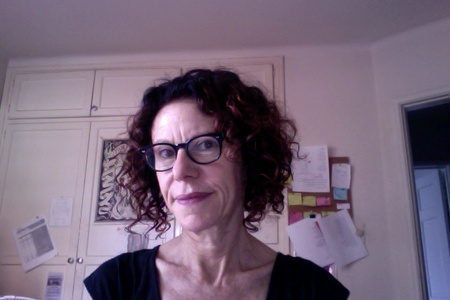
Amy Gerstler is the author of 15 poetry collections, including Scattered at Sea, longlisted for the National Book Award; Dearest Creature, a New York Times Notable Book; and Bitter Angel, winner of a National Book Critics Circle Award. A Guggenheim Fellowship recipient, she has also produced work for the stage in the form of a musical co-written with composer Steve Gunderson. Her latest collection, Is This My Final Form? (Penguin; reviewed in this issue), blends the quotidian and the surreal in its poems about metamorphosis, music, loss, nature, and Covid-19 lockdown.
There's a wide tonal range here, with satire on the one hand and elegies on the other. How does that reflect the range of uses poetry can be turned to?
Hooray for this question. Poetry is historically and contemporarily an INCREDIBLY nimble and capacious genre. From epigrams to epics, its modes and uses are infinite. Could it be the most protean of art forms?
The theme of shapeshifting finds an echo in the question of poetic form. How do you seek to strike a balance between formal structures (like sonnets) and looseness?
I don't know that I was looking for balance between formal structures and looseness so much as variety and/or the kind of range you mentioned earlier to manifest throughout the book. If I was going to try to loosely center this book around themes of transformation, then it seemed important that the forms as well as the content of the poems embody at least some degree of shape shifting.
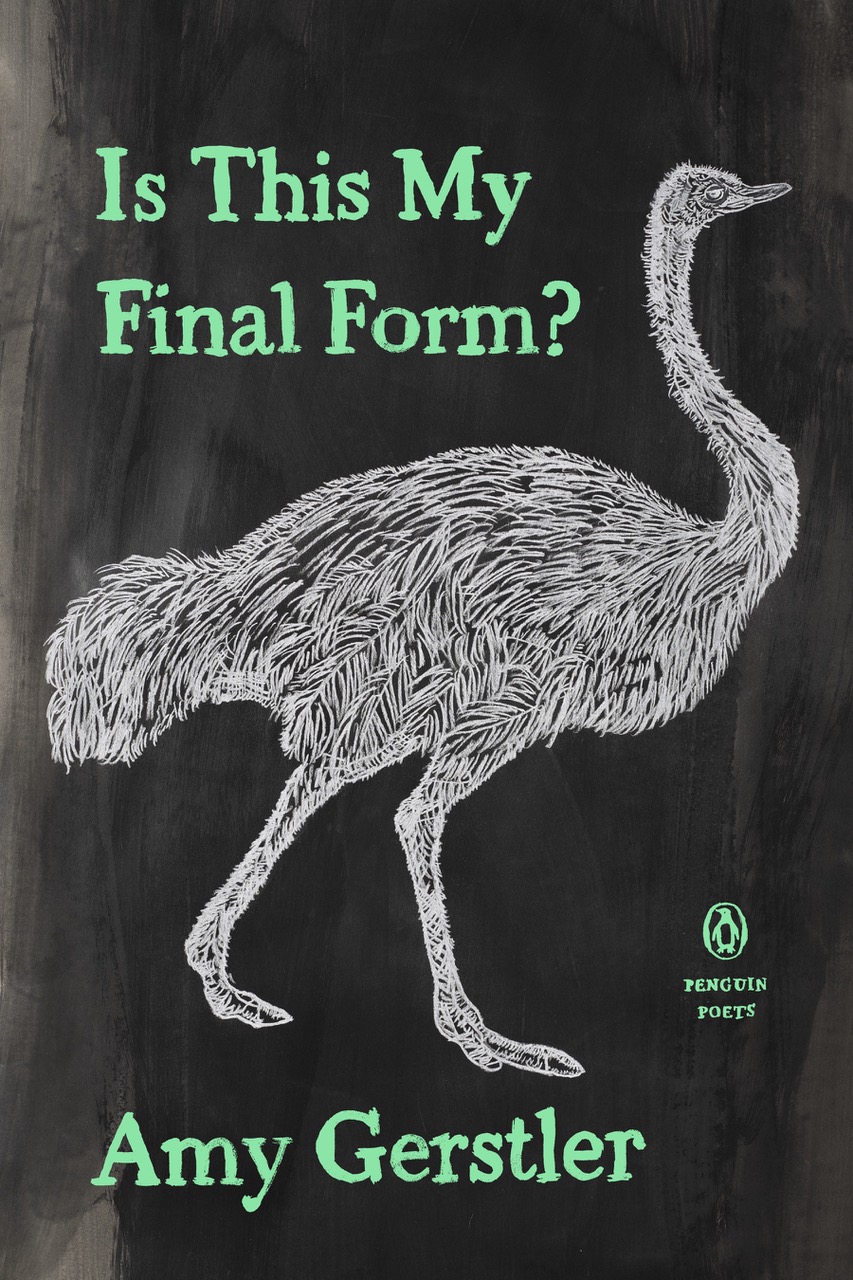 The first section of the book contains some poems about women behaving "badly" (thinking of Marigold and Mae West). How have you broken rules in your life and career, and what do these "bad girls" have to teach us?
The first section of the book contains some poems about women behaving "badly" (thinking of Marigold and Mae West). How have you broken rules in your life and career, and what do these "bad girls" have to teach us?
Cool question. I don't know if I would characterize the women in those poems as behaving badly, so much as acting boldly. And it's hard for me to say how I might have broken rules in my career, maybe because I don't think artmaking has rules. You get to make your own, which is one of its attractions. I think women who challenge norms and taboos, women who push back against gender strictures in their lives and work have EVERYTHING to teach us, always: about who humans can be, about freedom, strength, possibility, creativity, self-regard, progress, interdependence, mercy, empathy, joy, enlightenment, love, ethics, the erotic, on and on. That's why I'm endlessly interested in their voices.
Parts of the collection arose from the Covid-19 lockdown experience. Did the constraints of that time fuel creativity for you in some ironic way?
Early in the pandemic, during those few moments when I wasn't paralyzed with fear, I thought: Well, Amy, you are such a loner, and always longing for stretches of quiet, uninterrupted time to write, now maybe you can make use of this. You better! But I learned something about myself during lockdown. I really like to have control over when I am alone and when I see people! I don't thrive in imposed solitude at all! So sad as I am to admit this, I kind of fell apart and wasn't good for much in the initial few months of pandemic confinement. Eventually, I was able to adjust and get work done but it took much longer than I would have liked.
I saw that you're based in Los Angeles. The recent fires must have been a tough time personally and collectively. What do you see as the duty of the artist in the wake of catastrophe?
The fires were truly terrifying. So many people are now living in the aftermath of having lost homes, studios, artwork, writing, schools, whole neighborhoods, loved ones. In the wake of disaster, even during it (since current political calamities seem to be unfolding over protracted periods of time) I think the duty of the individual artist is to determine what they want to speak about through their work and the kinds of work they feel called to make (which is their duty at all times in my view!), and to support their fellow artists and fellow beings through their work and life.
Animals have a strong presence in the book. What roles do other creatures play in your life and work?
Seeing and knowing animals is one of the richest joys of being alive for me. Animals are sharers of the planet, capable of so much more than we give them credit for. I want my work to honor and explore expanded notions of creatureliness and who are sentient beings. So much can be learned from our fellow creatures. At times I have felt more at home with animals than people. I love that passage from Walt Whitman's Song of Myself pertaining to animals. It's way too sweeping and naive (re: the final line for example: of course there are unhappy animals!!) but I still love it:
I think I could turn and live with animals, they are so placid and self-contain'd,
I stand and look at them long and long.
They do not sweat and whine about their condition,
They do not lie awake in the dark and weep for their sins,
They do not make me sick discussing their duty to God,
Not one is dissatisfied, not one is demented with the mania of owning things,
Not one kneels to another, nor to his kind that lived thousands of years ago,
Not one is respectable or unhappy over the whole earth.
You've also worked in other media (such as a musical), and there is a miniature play included in this collection. How do these different ventures nourish you artistically?
The artists I admire most in all genres are constantly pushing themselves, making it new, so I have a hunger to emulate that. And I think most artists have a horror of getting stuck or repeating themselves. A perpetual student at heart, I love writing and literature intensely, so I want to explore those realms as much as I'm able within my one small allotted lifetime. One way to do that is through collaborating with artists in other fields or by attempting to work in genres new to me. --Rebecca Foster, freelance reviewer, proofreader, and blogger at Bookish Beck
Book Candy
Book Candy
Items from the estate of British author Barbara Taylor Bradford OBE, including her writing desk, typewriter, and writing pens, will be going to auction on May 7.
---
"Feeling bumfuzzled or have the collywobbles?" Merriam-Webster looked up cattywampus and "other funny-sounding words."
---
"Rare letter offers glimpse into Bram Stoker's early thoughts on Dracula." (via the Guardian)
Rediscover
Rediscover: Mario Vargas Llosa
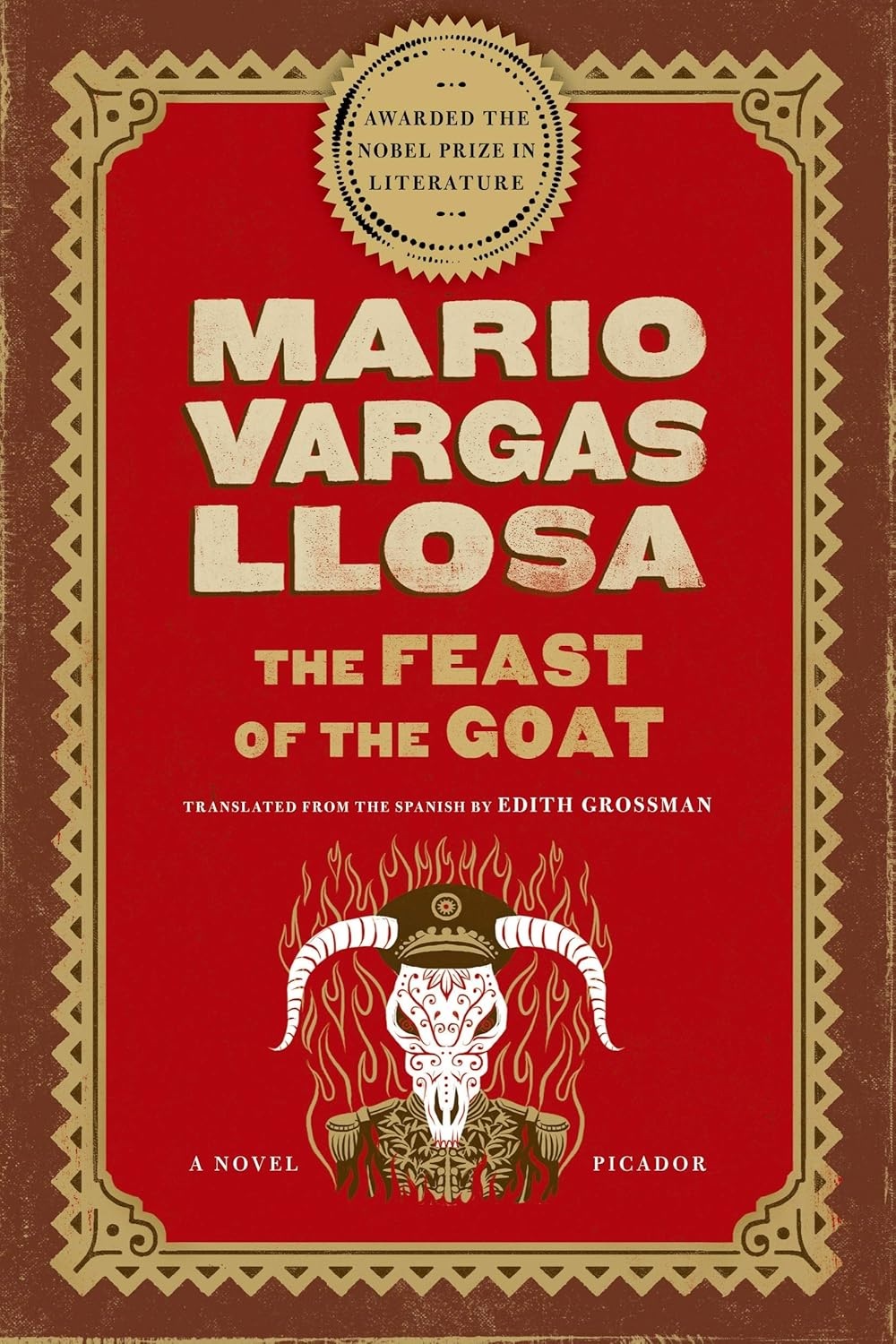 Mario Vargas Llosa, the Peruvian novelist, journalist, essayist, and winner of the Nobel literature prize in 2010, died April 13 at age 89. He wrote in a variety of genres, including historical novels, political novels, comedies, murder mysteries, essays, political essays, literary criticism, and plays. Early work that established his international reputation included the novel The Time of the Hero, set in a Peruvian military school and based on his experiences at a military school; The Green House, set in a brothel of the same name; and Conversation in the Cathedral, which focuses on dictatorship's effect on the country's citizens.
Mario Vargas Llosa, the Peruvian novelist, journalist, essayist, and winner of the Nobel literature prize in 2010, died April 13 at age 89. He wrote in a variety of genres, including historical novels, political novels, comedies, murder mysteries, essays, political essays, literary criticism, and plays. Early work that established his international reputation included the novel The Time of the Hero, set in a Peruvian military school and based on his experiences at a military school; The Green House, set in a brothel of the same name; and Conversation in the Cathedral, which focuses on dictatorship's effect on the country's citizens.
Later work included Aunt Julia and the Scriptwriter, based on his first marriage, which took place when he was 19, to his uncle's sister-in-law, who was 10 years older than Vargas Llosa; The War of the End of the World, about an uprising by a cult in 19th-century Brazil; and The Feast of the Goat, about the assassination of Rafael Trujillo, longtime dictator of the Dominican Republic.
Vargas Llosa "combined gritty realism with playful erotica and depictions of the struggle for individual liberty in Latin America, while also writing essays that made him one of the most influential political commentators in the Spanish-speaking world," the New York Times wrote. He "gained renown as a young writer with slangy, blistering visions of the corruption, moral compromises and cruelty festering in Peru. He joined a cohort of writers like Gabriel García Márquez of Colombia and Julio Cortázar of Argentina, who became famous in the 1960s as members of Latin America's literary 'boom generation.' "
In 2010, the Nobel committee praised Vargas Llosa for "his cartography of structures of power and his trenchant images of the individual's resistance, revolt, and defeat."
Vargas Llosa shifted politically during his life. As a young man, he was a Marxist and supported Cuba, but eventually became what the Wall Street Journal called "an unshakable defender of democracy, personal liberties and free markets at a time when the region was polarized between leftist revolutionaries and right-wing dictatorships. His belief that private enterprise and political freedom were inseparable turned him into an ideological outsider among members of Latin America's intelligentsia."
In 1990, when the country was in economic crisis and Shining Path was strongest, Vargas Llosa ran for president of Peru, but was soundly defeated by Alberto Fujimori.
Besides the Nobel Prize, Vargas Llosa won the Cervantes Prize, the Rómulo Gallegos Prize, the Prince of Asturias Award, the Jerusalem Prize, and the Pablo Neruda Order of Artistic and Cultural Merit. In 2021, he was elected to the Académie Française. In the late 1970s, he was president of PEN International.


